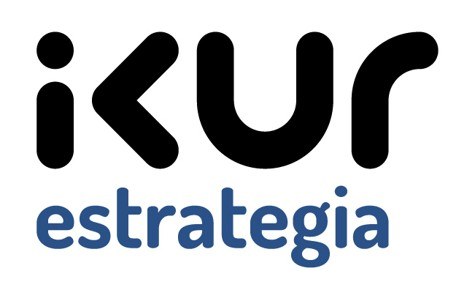PostDoc - NANOBIO. Rational Design and Development of Nanostructured Self-Assembled Platforms for Membrane Biophysics, Biotechnology and Biomedical Applications (Closed)
ivan.rivilla@ehu.es
armando.maestro@ehu.eus
We are currently accepting applications for the above mentioned position. This is a unique opportunity for junior researchers with a recent PhD degree in Physics or related fields to join one of DIPC’s high-profile research teams.
The role
Lipid membranes are fundamental to cellular organization, yet their complexity makes studying molecular mechanisms challenging. Supported lipid bilayers (SLBs) serve as model systems, but traditional SLBs lack curvature, a key factor in processes like vesicle fusion, protein insertion, and signaling. NANOBIO addresses this limitation by developing curvature-responsive biomimetic platforms using nanostructured substrates. These innovative systems enable the study of protein behavior under physiologically relevant curvature conditions, providing unprecedented insights into protein-lipid interactions.
Going beyond modelling curvature, NANOBIO is pioneering the development of protein-based biocatalysts by immobilizing designed repeat proteins (CTPRs) on nanostructured membranes. This approach enhances diastereocontrol and catalytic efficiency, optimizing reaction specificity via spatial arrangement and restricted flexibility. This novel strategy for highly selective protein catalysts has potential applications in industrial biocatalysis. The project further explores protein/polymer hybrid self-assembly on nanostructured membranes, advancing enzyme-functionalized electroactive surfaces for bioelectronics. By improving electron transfer, these systems will enhance biosensors and enzyme-sensitive organic field-effect transistors (OFETs), unlocking new biomedical and electronic applications.
A key component of NANOBIO is DEULAB, the first deuteration platform in the Basque Country. This facility enables the production of deuterated biomolecules for neutron scattering studies, supporting high-resolution analysis of biomimetic membranes. Developed in collaboration with JCNS and ILL, DEULAB strengthens nanotechnology research by providing crucial insights into biomolecular interactions. Finally, NANOBIO expands local expertise in neutron scattering techniques (NSTs), integrating AI-driven data analysis to extract deeper insights from experimental data. By positioning the Basque Country as a hub for NST-driven biomolecular research, the project fosters international collaboration and innovation in nanomedicine, biotechnology, and materials science.
Desired background & competences
- Hold a PhD degree in Physics, Chemistry, Biology, Materials Science, Engineering, or a closely related field.
- Possess strong expertise in imaging and scattering techniques (experience with Atomic Force Microscopy is particularly advantageous).
- Demonstrate knowledge in biophysics and protein/lipid biotechnology.
- Have a background in Soft Condensed Matter Physics and/or Organic and Physical Chemistry as well as in protein engineering and/or Synthesis and Characterization of Nanostructures
Working conditions
- Estimated annual gross salary: Salary is commensurate with qualifications and consistent with our pay scales
- Target start date: 2025/07/01
We provide a highly stimulating research environment, and unique professional career development opportunities.
We offer and promote a diverse and inclusive environment and welcomes applicants regardless of age, disability, gender, nationality, ethnicity, religion, sexual orientation or gender identity.
The center
About the team
The consortium led by Prof. Armando Maestro (MPC), Prof. Iván Rivilla (DIPC), Dr. Ana Beloqui (POLYMAT), and Prof. Aitziber Cortajarena (CiC-BiomaGUNE) to focus on the design, synthesis, and characterization of innovative bio-inspired materials composed of engineered protein assemblies and biomimetic lipidic nanostructures. This research will employ a multi-technique approach, with a strong emphasis on advanced microscopy (primarily Atomic Force Microscopy), various spectroscopy methods, and neutron (and X-ray, light) scattering techniques.
How to apply
Interested candidates should submit an updated CV and a brief statement of interest to the following application email below.
Reference letters are welcome but not indispensable.
The reference of the specific opening to which the candidate is applying should be stated in the subject line, and the application must be received before the application deadline.
Although candidates are welcome to contact the project supervisors to know further details about the proposed research activity, please be aware that the application will be evaluated only if it is submitted directly to the email address listed below as application email.
- Reference: 2025/27
- Application deadline: 2025/06/05
- Application email: jobs.research@dipc.org
Selection process
Applications received by the deadline will be evaluated by a Committee designed by the DIPC board on the basis of the following criteria:
- CV of the candidate (40%)
- Adequacy of the candidate’s scientific background to the project (40%)
- Reference letters (10%)
- Other: Diversity in gender, race, nationality, etc. (10%)
Evaluation results will be communicated to the candidates soon after. Positions will only be filled if qualified candidates are found.
The DIPC may revoke its decision if the candidate fails to join by the appointed time, in which case the position will be awarded to the candidate with the next highest score, provided it is above 50 (out of 100).
However, the selected candidate may keep the position if, in the opinion of the Selection Committee, the candidate duly justifies the reasons why he or she cannot join before the specified deadline, and as long as the project allows it.
![]()

